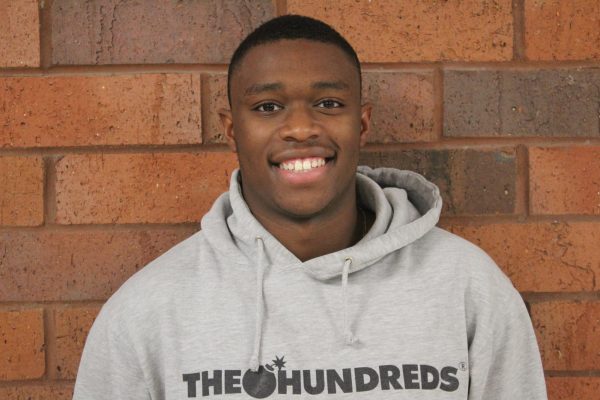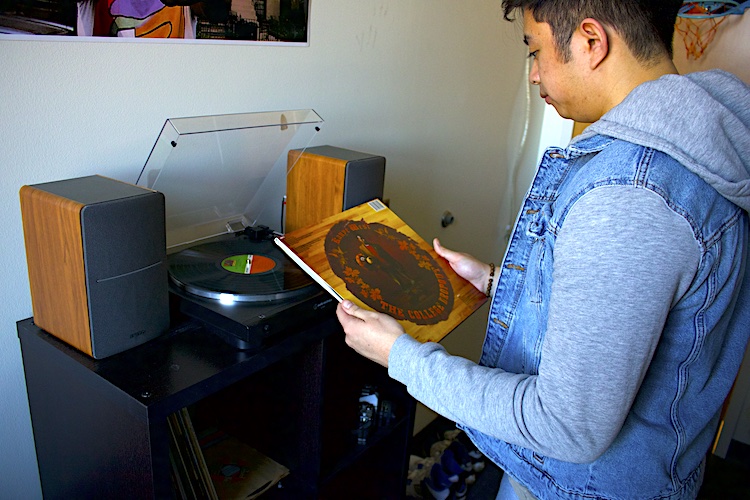What happened Mr. West?
Kanye West is one of the most talented artists in the world, but also one of it’s most controversial
Photo by Oludare Obadiya
Kanye West’s quintessential debut record “The College Dropout”
When I was in sixth grade, one of my favorite songs was “All Falls Down” by Kanye West featuring Syleena Johnson. The tune comes from West’s debut album “The College Dropout”, originally released in 2004.
Its chorus consists of a line borrowed from Lauryn Hill’s folk leaning R&B jam “Mystery of Iniquity”. It’s laid over an acoustic guitar riff and a classic hip hop beat, with lyrics that speak to millions.
“The College Dropout” is an extremely self-aware album. This fact made it stand apart from other hip-hop records from the 1990s and 2000s.
In it West raps about the nature of poverty and education. He spoke about his reality as Black kid from Chicago going to community college.
And like many hip-hop artists at the time, he rapped about drugs, but not in the way you’re thinking. He didn’t glorify the lifestyle, and unlike many popular hip-hop artists of the early 2000s–including Jay-Z, the major artist who signed him–West never lived that life.
West rapped about a less extravagant, likely more realistic, side of the world of making a living on crime. One where kids go to college to try and make something of themselves, but pay their tuition with cash they made selling dope.
“And all my people that’s drug dealing just to get by, stack your money till it gets sky high,” he sings on “We Don’t Care,” another hit of his debut album. “Sittin’ in the hood like community colleges, this dope money here is little Tre’s scholarship,” he raps.
He highlights the rich dichotomy between how people want to be viewed and who they actually are. West would end up doing this throughout his whole discography, even as he became a more established artist.
The smart, politically and culturally conscious nature of West’s early music along with the apparent insecure, self aware and humble nature of West himself at the time, contradicts his behavior in recent years.
At first, his public outbursts were excused by devout fans and written off by the public as the expected actions of a flamboyant star. After all, his forthright nature and at times off-color remarks are part of what made him an overall beloved figure in pop culture.
When a tipsy West walked up on stage, uninvited, at the VMA’s to show some love to his friend and fellow artist Beyoncé (mortifying Taylor Swift in the process), everyone including his most loyal fans let out a scolding, exasperated, “Kanye, how could you do that?”
But when he criticized President George Bush’s notoriously lackluster response to Hurricane Katrina, many applauded his willingness to put into words what some thought but would never say out loud.
Over time, however, his arguably applaudable, if not unceremoniously delivered, public statements became fewer and farther between. While his more egocentric and hard to rationalize tirades became more frequent.
His apparent presidential run in 2020 was confusing. The comments he made in 2018 about slavery being a choice were infuriating as much as they are disappointing, and his pestering of his ex-wife Kim Kardashian and her recent fling Pete Davidson has turned into borderline harassment.
With all this attention surrounding West, Netflix swooped in and made a three-part series on his early years in the industry titled “Jeen-Yuhs.”
It’s made entirely from old footage that was recorded and voiced over by West’s friend and partner in crime at the time, Clarence Simmons, better known as Coodie.
The footage starts off just before the release of “The College Dropout” in the early 2000s. It shows a young, eager and industrious West vying for the attention of Jay-Z and his record label, Roc-A-Fella Records.
The documentary also shows the loving and strong relationship between West and his mother, Donda West.
It becomes clear Mrs. West had a huge influence on Kanye’s copious amount of self-belief. It was good to find out West’s unbridled confidence stems from wholesome roots.
This depiction of West as a talented, hardworking momma’s boy patiently waiting for his chance to prove himself to the rest of the Hip Hop world is likely the most flattering framing you will find of the mercurial super star.
This rose-tinted portrayal, paired with the base bumping baggy-clothed nostalgia saturating the footage of the documentary could make someone think this three-part series from Netflix skirts the line of escapism.
One might say it doesn’t matter what West used to be like, it matters what he is like now. And while I understand this sentiment, I can’t say I completely agree. Other factors come into play.
In the years following the release of his first few albums, West’s mother would pass due to complications following a cosmetic surgery. West has admitted that he in part blames himself.
Then there is West’s self-admitted struggles with mental health and substance abuse. It’s more than fair to hold West accountable for his actions, but it’s hard to judge a human being for how they cope with their mental health and the loss of a loved one.
All we can do is hope he gets the best help possible.
This is not meant to be a list of excuses for the worst West has said and done. I also don’t want to overzealously glorify his accomplishments.
This is a requiem for the artist and person West was in touch with when he was younger, embedded with the hope he can find his way back to that state of mind.
Obadiya can be reached at [email protected].

Oludare is a fourth-year journalism student and this is his fifth semester on The Spectator. He likes watching basketball and is pretty mediocre at it, but that doesn't stop him from playing it. He has a small but growing record collection and believes Woody Harrelson is a style icon and national treasure — fact not opinion.











